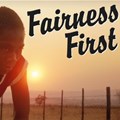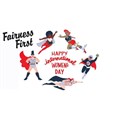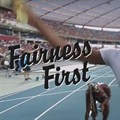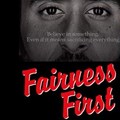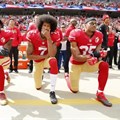#FairnessFirst: Nike just does it again - this time standing strong for equal pay

Kantar's Best Liked Ads does what the name expects – it lists South Africa's favourite TV commercials as rated by the viewing audience, as that’s ultimately any brand’s most important critic.
Especially in this time of brand humanity and purpose-led marketing.
And coming in second in the most recent version is Nike’s “Just do it: Caster Semenya,” which picked up a bronze Glass Lion at the 66th Cannes Lions Festival of Creativity.
The reason the ad resonates is that the Nike brand itself isn’t the focus of the ad – rather, Semenya is, and the emotional ad tells an engaging story that creates a strong, emotional and meaningful impression in consumers’ minds.
“That’s too bad,” says Semenya of her dubious critics, “because I was born to do this”, inspiring consumers to “just do it” too.
It seems Nike’s winning streak in this regard has just begun.
In an article titled, ‘Characterless brands have weak handshakes’, All Told says:For some time now, we have been wondering whether it is a good or bad thing for a brand to take a public stand on moral, social or cultural issues. Nike took a stand on backing Colin Kaepernick (you know, the football star who knelt during the USA national anthem in protest of Trump). Nike alienated a lot of people by supporting Kaepernick, but at the same time they won the admiration of many others. Did they do the right thing for the brand - was there a net gain in sales and brand reputation? Apparently, there was.
Initial fears of ‘goodwashing’ have since fallen away as Nike proves time after time that this sentiment of standing with those who may need a boost runs strong.
Fashionista reports that Nike is leveraging soccer, fashion and inclusivity to boost its women’s business,” because despite Adidas being the official 2019 FIFA Women's World Cup sponsor, Nike sponsored 14 of the 24 teams in the tournament, including the US and Netherlands, which won gold and silver, respectively.
This means more minutes were played and more goals were scored in Nike boots than in any other brand and all players on the pitch for the final in France last Sunday wore Nike sports bras.Fittingly, CNN says that minutes after the US national soccer team won its second consecutive Women's World Cup championship — its fourth overall — Nike aired a 60-second ad in honour of the victory.
Despite the pay disparities, U.S. women’s soccer games are now generating more total revenue than U.S. men’s games.
— Jennifer Bendery (@jbendery) July 5, 2019
And Nike just announced that the U.S. women’s team’s jersey is now the highest-selling soccer jersey ever sold, men's or women's, on its website in one season.
That’s what we call truly supporting your brand ambassadors, and it’s proving profitable globally.
While CNBC reported in March this year that Nike’s sales were up ‘just 7 percent’ to $3.81 billion in North America, (that’s softer growth than what some people had expected), Nike reported net income of $1.1 billion, or 68 cents a share, compared with a net loss of $921 million, or a loss of 57 cents per share, a year ago.
A survey by Refinitiv placed those Earnings per share at 3 cents ahead of analysts’ expectations, while in Europe, the Middle East and Africa, sales were up 12 percent, excluding currency changes, in Asia Pacific and Latin America, sales grew 14 percent and in China, revenue climbed 24 percent.
Over and above this, Nike’s women’s business is over-indexing growth of their men’s business.
We can see why.
Read more







